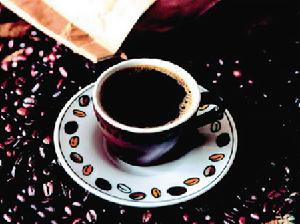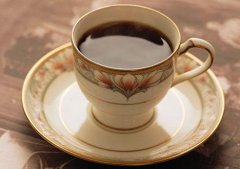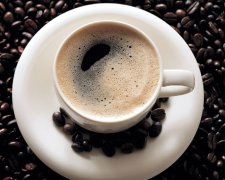The characteristics of coffee in Silver Mountain Manor in Jamaica introduction to the types of coffee in Silver Mountain Manor

For professional baristas, please follow the coffee workshop (Wechat official account cafe_style)
The characteristics of coffee in Silver Mountain Manor in Jamaica introduction to the types of coffee in Silver Mountain Manor
Coffee characteristics: the myth of the coffee world. Its flavor is mild, clean, soft, fruity and sour, and can meet people's various needs. In addition, the delicious and juicy Blue Mountain coffee has a long-lasting flavor, as drinkers say, with a long aftertaste. Overall rating: excellent
Now, 90% of the post-harvest Blue Mountain coffee is bought by the Japanese. In 1992, Jamaica sold 688 tons of Blue Mountain coffee to Japan, 75 tons to the United States and 59 tons to Britain. Now that the rest of the world can only get 10% of the output of Blue Mountain coffee, regardless of the price, blue mountain coffee is always in short supply. In the UK, Langford Brothers Brothers has been the only supplier for many years. Later, the Edmunds Group (Edmonds Group) also received supplies from Jamaica's Salda Food Company (Salda Foods).
Langford Brothers Brothers is a licensed Jamaican Blue Mountain Coffee brand.
The difference in transportation between Blue Mountain Coffee and other coffee is that it is transported in barrels with a capacity of 70 kilograms, a replica of Bonifieur barrels produced in Guadeloupe in the last century. The barrel was originally used to carry flour shipped from the United Kingdom to Jamaica, usually with a trademark and the name of the manufacturer. The Coffee Industry Council issues certificates for all authentic Jamaican coffee and bears a stamp of approval before export.
The Jamaican government used to insist that all Blue Mountain coffee is roasted in Jamaica to ensure that the quality remains the same. In fact, baking is a fine art, and it takes experience, training and expensive equipment to do a good job. From the consumer's point of view, coffee beans should be obtained and drunk immediately after baking. Coffee roasting in Jamaica is unlikely to meet this requirement. Now, raw coffee beans from Jamaica can be exported.
Location: central America
Area: 11100 square kilometers
Population: 2826000
Official language: English
Coffee planting area: 9000 ha
Coffee output: 27,000 bags
Coffee variety: Arabica
Coffee marks in special producing areas:
Jamaica Jamaica
Population: 2711000
Jamaica has only one coffee producing area and is the most famous growing area in the world.
BLUE MOUNTAIN
Blue Mountain Coffee, the most successful work in coffee history, this particular area of Jamaica has been clearly defined and well protected. Only in the areas of Saint Andrew, Saint Thomas, Portland and Saint Mary can coffee grown between 900m and 1500 m (3000 and 4900 ft) above sea level be called the "Jamaican Blue Mountains" (Jamaica Blue Mountain). Coffee grown between 450m and 900m (15003000 ft) above sea level is called "Jamaica High Mountain", while beans below these areas are called "high quality Jamaica" (Jamaica Supreme) or "low Jamaican mountain" (Jamaica Low Mountain). The traceability of Blue Mountain Coffee can cause some confusion because most coffees are sold according to the name of the factory in which they are processed. These factories may occasionally buy coffee from a single large estate, but they usually buy it from countless small farmers in the area. For a long time, the vast majority of Jamaican Blue Mountain coffee has been exported to Japan in small wooden buckets instead of sacks. It is also worth mentioning that because Blue Mountain Coffee can soar in price, there are usually a large number of imitation products in the market.
Altitude: 900-1500m
Harvest: June-July
Variety: Jamiaica Blue Mountain (a Typica derivative), Typica
In 1728, Sir Nicholas Nicholas Lawes, then governor of Jamaica, introduced coffee from Martinique. Jamaica is an ideal place to grow coffee, and nine years after it was introduced, they began to export about 83000 pounds of beans a year. Between 1728 and 1768, the Jamaican coffee industry was in ST. There was a great deal of development in the foothills of Andrew, but eventually it gradually developed to the Blue Mountains. In June 1950, the Coffee Industry Association of Jamaica established official standards for the quality of raw beans for export coffee.
The Blue Mountain area refers to some islands to the east of Jamaica, and only the coffee grown here can be called Jamaican Blue Mountain Coffee (JBM). Jamaican Alpine Coffee (Jamaica High Mountain) refers to the fact that coffee is grown in alpine areas outside the Blue Mountain area. Wallenford, Mavis, Old Tavern and Moy Hall are the four most famous statutory blue mountain coffee raw bean processing plants in Jamaica. But these four are not coffee farms, they are raw coffee processing plants, do not grow their own coffee, but buy unprocessed raw coffee beans from small farms in the Blue Mountains area and then deal with them in accordance with official quality standards.
The flavor of the really high-end Jamaican Blue Mountain coffee is purely clean, gentle and gentle, but this is also where blue mountain coffee is more difficult to bake, just like other beans that also come from the island. even the best Jamaican coffee grown at the highest altitude is not the highest in altitude compared with other coffee grown at the highest altitude, and the bean density at lower altitude is lower. Therefore, the things to pay attention to when baking are also different. If you lack the experience of baking high-quality coffee, even if you buy great blue mountain raw beans, you may bake a pot of lifeless ordinary coffee. In addition, the rule of thumb for brewing Blue Mountain Coffee is to increase the amount of beans by 20% in order to get the rich and elegant charming aroma of Blue Mountain Coffee, which is why Blue Mountain Coffee needs to be sold more expensive.
Jamaican Blue Mountain Coffee is harvested every year from June to November, usually by hand. After picking, it goes through the processes of washing, peeling, fermentation, dehydration, sun drying, shelling, and baking before you can get a ripe blue mountain coffee bean. In the process of raw bean processing, there are special personnel responsible for quality supervision in each step. For the very precious Blue Mountain Coffee, the packing and transportation mode adopted by the Jamaican government is also different. Unlike other coffees, Blue Mountain Coffee is not packed and transported in cloth bags at the rate of 60kg / bag, but in wooden barrels to the standards of 70kg/, 18kg/ and 15kg/ barrels. Jamaica is also the last country to still transport coffee in traditional wooden barrels. Jamaican Blue Mountain coffee beans must obtain a certificate of quality recognition issued by the Jamaican Coffee Industry Committee, which is the only body in Jamaica authorized to issue such a certificate. And each batch of export will have special quality supervision experts responsible for sampling, baking, grinding and brewing coffee, and finally make a judgment on whether to meet the standard. The "secret" of why Blue Mountain coffee tastes pure: their coffee trees are all on rugged hillsides, and the picking process is so difficult that non-local skilled women are simply unable to do it. It is very important to choose the right ripe coffee beans when picking. Immaturity or ripeness will affect the quality of the coffee. The picked coffee beans are shelled on the same day, and then let them ferment for 18 hours. After that, the coffee beans were cleaned and screened. The subsequent process is to dry, which must be carried out on the cement floor or on a thick blanket until the humidity of the coffee beans drops to 12% 14%. And then store it in a special warehouse. Take it out and roast when needed, then grind it into powder. These procedures must be strictly mastered, otherwise, the quality of coffee will be affected.
Some small estates also grow Blue Mountain Coffee, such as Wallenford Estate, Silver Hill Estate and Atlanta Estate in J.Martinez. Even the largest landowners in the region are small-scale growers by international standards, many of whom are small landowners whose families have been working on the land for two centuries. The coffee industry in Jamaica faces a series of problems, such as the impact of hurricanes, the increase in labor costs and the difficulty of mechanizing terraces. It is difficult to rationalize planting on many small estates and farms.
However, Blue Mountain Coffee is one of those coffee retailers that value credibility to stock some coffee no matter what. A leading British retailer said: regardless of the price, he will continue to sell Blue Mountain coffee all year round because he has many customers who only recognize "Blue Mountain".
Important Notice :
前街咖啡 FrontStreet Coffee has moved to new addredd:
FrontStreet Coffee Address: 315,Donghua East Road,GuangZhou
Tel:020 38364473
- Prev

The coffee producing area of Silver Mountain Manor in Jamaica introduces the elevation of coffee beans in Silver Mountain Manor.
For the exchange of professional baristas, please follow the coffee workshop (Wechat official account cafe_style) Silver Mountain Manor Coffee production area in Jamaica Silver Mountain Manor Coffee beans how high above sea level the Jamaican government used to insist that all Blue Mountain coffee is roasted in Jamaica to ensure the same quality. In fact, baking is a fine art, and it takes experience, training and expensive to do a good job.
- Next

Coffee bean flavor of Silver Mountain Manor in Jamaica describes how to drink Silver Mountain Manor Coffee
The exchange of professional baristas please follow the coffee workshop (Wechat official account cafe_style) Silver Mountain Manor coffee bean flavor description of Silver Mountain Manor coffee in Jamaica the annual harvest period is from June to November, usually by hand picking, after picking, it can be obtained by washing, peeling, fermentation, dehydration, drying, shelling, baking and so on.
Related
- Does Rose Summer choose Blue, Green or Red? Detailed explanation of Rose Summer Coffee plots and Classification in Panamanian Jade Manor
- What is the difference between the origin, producing area, processing plant, cooperative and manor of coffee beans?
- How fine does the espresso powder fit? how to grind the espresso?
- Sca coffee roasting degree color card coffee roasting degree 8 roasting color values what do you mean?
- The practice of lattes: how to make lattes at home
- Introduction to Indonesian Fine Coffee beans-- Java Coffee producing area of Indonesian Arabica Coffee
- How much will the flavor of light and medium roasted rose summer be expressed? What baking level is rose summer suitable for?
- Introduction to the characteristics of washing, sun-drying or wet-planing coffee commonly used in Mantenin, Indonesia
- Price characteristics of Arabica Coffee Bean Starbucks introduction to Manning Coffee Bean Taste producing area Variety Manor
- What is the authentic Yega flavor? What are the flavor characteristics of the really excellent Yejasuffi coffee beans?

